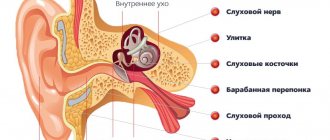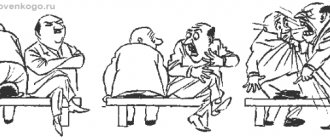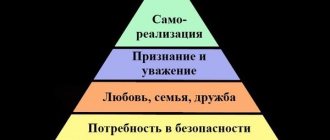Adviсe
- Self-preservation of an adult
- Self-preservation instinct in women
- Self-preservation instinct in a child
- Self-preservation instinct disorders
A fundamental place in nature and human life is occupied by instincts, which are expedient actions without mental awareness of the goal and final result. The basis of human life are two instincts: the instinct of procreation and the instinct of self-preservation, the latter will be discussed further.
Human life is subject to the manifestation of instincts and continues due to them. But the manifestation of the instinct of self-preservation in the human environment is different for different people and is often dulled among the male sex - hence the love of men for extreme sports and entertainment, delicately balancing between life and death. Self-preservation is the fear of factors dangerous to the health and life of a person as a whole, and even suicidal tendencies do not indicate otherwise. A person in a state of depression, affect or psychological/nervous breakdown also experiences fear of death, but at some point other emotions are overwhelmed even by instinctive impulses.
Since the instinct of self-preservation in a person from birth becomes a direct source of life, it is as natural as breathing or eating, and, if necessary, is expressed in forms of behavior of varying degrees of complexity.
Definition
What is the human self-preservation instinct? This is the instinct that allows people to survive. When a car appears on the road, a person will turn away from the car’s trajectory, and if a hurricane begins, a sane individual will hide in the nearest permanent building. Some people say that everything needs to be learned, and this is true. Nature does not always endow people with the same qualities and lay down the same abilities. Some people have a well-developed instinct of self-preservation, while others have to work on its development. How often can a person’s unique ability to preserve his own life come in handy? Daily. Few people think about the fact that hunger is a signal from the body that reminds us that it is time to eat. If it had not been there, the person could have died. The same goes for sleep. A person must sleep, otherwise his body will not be able to tolerate daily physical activity. How else can a defensive reaction aimed at survival manifest itself?
How it manifests itself
Human motivation - what is it
Before giving examples of self-preservation inherent in a person, it is necessary to take a closer look at the forms of its manifestation. The main initial driving force of IS is fear for one's own life. It can manifest itself under the influence of the following factors:
- hunger or thirst - the body can die from a lack of one or the other, a person must constantly take care of food;
- hypothermia or overheating - the need to create conditions suitable for life for the body forces people to build homes, provide themselves with clothing and protect the body from excess temperature;
- illness - in order to protect itself from loss of life as a result of various diseases, humanity has invented and is developing medicine; an individual, feeling unwell, is treated;
- war or external aggression force people to arm themselves, learn self-defense techniques, and call on strangers for help to help them stay alive.
All these actions aimed at survival are embedded in the subconscious and can be performed automatically without the involvement of consciousness.
Law of self-preservation
Manifestation of instinct
What do you do to survive? Nothing? It is not true. The instinct of self-preservation in humans is an innate quality, the manifestations of which few people think about.
- Satisfying hunger. In order not to die, a person must eat daily. What would happen to a person if there were no hunger? Some individuals who have memory problems might die. And it is simply impossible to forget about what you really want.
- Warm clothes. A person protects his body from the cold before going out into the cold. To avoid sunburn, people use sunscreen. By protecting his body, a person thereby saves his life.
- Treatment. You can die from a common cold. For many centuries, people have improved their knowledge of medicine in order to treat their fellow citizens and themselves. If a person gets sick, he will not lie down and moan; the instinct of self-preservation will force the individual to make an appointment with a doctor.
- Armament. If war breaks out, all people will take up arms. The need for peace and tranquility forces a person to defend his rights and not give his life without a fight.
Glossary of terms
In this section we have collected all the terms that you might encounter in this article. Gradually, we will collect from these explanations a real dictionary of a narcologist-psychiatrist. If some concepts remain unclear to you, leave your comments under the articles on our site. We will definitely help you figure it out.
Auto aggression
– activity consciously or unconsciously aimed at causing oneself physical or mental harm. It is considered one of the mechanisms of human psychological defense. It often manifests itself not only in self-harm, but also in insults addressed to oneself, self-deprecation, and even a craving for extreme sports and dangerous professions. In some cases, drug addiction
and alcoholism.
Self-destructiveness
– the same as auto-aggression
.
Heteroaggression
– aggression aimed at external objects (people, animals and objects), as well as situations that a person perceives as a source of danger (mainly in cases where the object of aggression does not actually pose any danger).
Deviance (deviation, deviant behavior)
– personal behavior that differs from generally accepted, socially acceptable, established norms and leads to the application of sanctions by society against the offender (forced treatment, imprisonment, exclusion from society, execution, etc.). Deviance as a social phenomenon is studied by sociology, and as an individual (medical) phenomenon by psychology and psychiatry.
Delinquency
– an antisocial illegal action or inaction of a person that harms both individual citizens and society as a whole.
The instinct of self-preservation
– an innate form of human behavior in the event of danger, the ability to act automatically (instinctively) if necessary to save oneself from the corresponding danger. It is realized through the sensations of pain and fear as limiting factors. In this case, pain is perceived as an abnormal condition that must be stopped, and fear forces one to hide from danger, and at the same time causes the release of an additional portion of adrenaline into the blood.
Hypochondria (hypochondriacal syndrome, hypochondriacal depression)
– excessive concern of the patient about the danger of his situation, for example, the danger of a completely harmless disease. Anxiety arises even if the illness from the disease does not cause much discomfort or the disease is habitual.
Trichophagia
- a complex of mental disorders, the distinctive feature of which is a person’s unhealthy attraction to his own hair - the desire to constantly eat it. According to statistics, however, there are not many patients with this diagnosis. True, many researchers note that people tend to hide such attractions, or not pay any attention to them.
InterpretationTranslationSelf-preservation is a person’s desire to maintain the achieved level of life and activity, based on a protective reflex and life instincts. Self-preservation of life, health, well-being, position and title, peace of mind, etc. there is a desire to “stay” at the “heights” taken. Often a person quite consciously uses certain actions in order not to lose the acquired spiritual and material capital. Self-preservation is most often associated with stability of conditions and the search for ways to counteract destructive factors. But the diversity of social life is such that a person often has to sacrifice the idea of self-preservation (at the front, when defending his homeland). Self-preservation is one of the principles of human ecology and the survival of humanity.
Fundamentals of spiritual culture (encyclopedic dictionary of a teacher).— Yekaterinburg.
V.S. Bezrukova. 2000. Synonyms
: Other books on request “Self-preservation” >>
Self-preservation in the crossword dictionary
The difference between human and animal instinct
How do people differ from their smaller brothers? What distinguishes humans from animals is the instinct of self-preservation. But animals, birds, and even insects have this instinct. What's the difference then? There are two types of self-preservation instinct.
- Unconscious. When a fire starts, a person will not think about what he needs to take. He will quickly run to where there is no fire. The hare and the fox will do the same. Animals in the forest can not only flee from fire, they will instinctively run to water. A person will do the same. After a terrible natural disaster, not all people can explain why they were able to survive. Many say they don't remember where they ran or what they did.
- Deliberate. What distinguishes humans from animals is the instinct of self-preservation of this particular species. In a critical situation, people can remember that it would be nice to save their loved ones, documents and grab valuables. A person can act quickly and accurately in the event of an accident, rescuing the wounded and pulling out the injured.
Preventing suicide: how not to miss warning signs in adolescent behavior
The colossal increase in suicide among teenagers is one of the paradoxes of our time. It would seem that our children have everything: expensive gadgets, fashionable clothes and the opportunity to visit other countries. But why are they so unhappy? The hungry post-war generation looked into the future with much more optimism than boys and girls in the 21st century.
A child's problems often seem stupid and far-fetched to us. But his emotions and experiences cannot be underestimated. An unrequited love for a bully, a bad relationship with a teacher, a quarrel with classmates - what for an adult is just a small everyday turmoil, in young eyes is seen as a global problem that will certainly ruin the rest of their lives.
Anna Leontyeva is a famous journalist, radio host and mother of three children. Her book “I Believe You're Hurt! Adolescents in borderline states" - a difficult experience of experiencing severe clinical depression of a daughter. The author's personal story is supplemented with advice and comments from experts. Anna Leontyeva's book will be useful for every parent to read. Teenage depression is incredibly insidious and knows how to mimic. Sometimes, without the advice of a psychologist, mothers and fathers simply cannot figure out what is going on in the soul of their child.
A separate chapter is devoted to how not to miss dangerous “bells” signaling that the child is depressed.
How to avoid missing warning signs
Psychologists have noted some aspects in the behavior of adolescents that may be considered alarming. These signs do not necessarily mean that the child has suicidal tendencies. But they definitely indicate that your child is in pain, and this cannot simply be ignored.
Long-term depressed state
It is completely natural for a teenager to “lock himself in a room” (conditionally or physically) - to avoid communication, to be sad, not to answer questions, not to enjoy what he used to enjoy. This also includes a sharp change in any typical behavior of a child: for example, he was always collected - he became completely absent-minded, as if “with an empty head.” He loved to communicate - now he avoids company.
The question is the duration of this condition and how much it prevents the child from living in his usual, normal mode. And here the contact between the child and the parent is very important.
Of course, keeping your finger on the pulse does not mean controlling, “flooding” a teenager with your anxious concerns or bursting into his room with an offer to have a heart-to-heart talk. All these actions, according to the categorical code of adolescent rules, are subject to immediate condemnation, without any mitigating circumstances. And we must be prepared for the fact that we will hear, perhaps, the most common teenage phrase: “Please close the door!”
But at the same time, it is very important not to remain on the other side of the door in a situation where our help is really needed. In a depressed situation, you should definitely try to talk very gently, tactfully and delicately with a teenager. If a child’s depressed state, excessive closedness, or isolation lasts more than two weeks, this is a reason to consult a psychologist.
Lack of self-preservation instinct
Children often feel invulnerable: “Nothing will ever happen to me.” But at the same time, if at the age of six or eight they want to be firefighters, submariners or pilots, then at the age of ten the instinct of self-preservation begins to manifest itself: children gradually realize that a plane can crash, and people are locked in a submarine for several months. This instinct of self-preservation is present even in the most daredevils. If in a teenager this instinct does not seem to manifest itself, if he constantly climbs into places where it is too dangerous, if he becomes a parkour athlete and a hooker, this is a serious sign that cannot be ignored and simply attributed to character and temperament.
Some children play very dangerous games, and parents do not even know that their son is a catcher on the roof of an electric train or a player in “run or die” (when a teenager must run across the road in front of a fast-moving car while being filmed on his phone). However, games on the edge of life and death are, as psychologists are convinced, a way to drown out the pain of loneliness. <…>
Self-harming behavior
If teenagers cut themselves - on their arms and legs, sometimes on their stomachs, often very neatly, symmetrically, as if to admire them - this is a very serious sign of a difficult internal state, when a person is inclined to express his internal tensions and emotions literally - through body. Sometimes teenagers describe it this way: “in order to drown out the inner pain, I need to inflict physical pain on myself,” “I wish I wasn’t—I feel unbearable, I don’t know what’s happening to me.”
Cuts, by the way, are more common in girls. Boys have a different reaction to internal pain - they fight, splash out their aggression outward. Girls are usually given the message that they can’t fight, that a girl must be decent, so they hurt themselves.
Cutting does not always indicate a suicide attempt. Often this is an exploration of pain, an exploration of your body. But cuts are always a reason to contact a specialist and find out how dangerous the situation is! <…>
Tail future
When we talk to a child about the future, we can ask him: “How do you imagine your life, our life, in five years?” One of the signs of depression is the so-called tail future - “shortened future”, when the child does not have the feeling that there is anything in this future.
However, when talking about the future, everything depends on your existing relationship. If the child feels that this is not a dialogue, but an attempt to impose something on him (in the format: “Well, are you going to be a quitter or a plumber - or are you finally going to get busy?”) - he will shut down. Try to talk to him about what really worries him, try to hear his opinion and his desires, even if they seem completely “frivolous”.
Desire to talk to a psychologist
Sometimes everything seems to be fine with the child - he studies normally, communicates with friends, has a good appetite. And suddenly he says that he would like to “talk to someone, for example, a psychologist.” Oddly enough, sometimes parents consider this a fad, fashion and the like. Sometimes such a child’s desire can strain parents, especially if they themselves do not really trust psychologists - they say, just waste time and money, we’ll figure it out ourselves. But, attention, this is very important! If a child wants to talk to a psychologist, then you need to run to the psychologist right away, without delay. If he has reached the point where he already understands the need for help, he cannot, absolutely cannot, answer: “Are you sure? So it's still normal. You're a great student..."
His conscious need for help means that he has gone through and experienced more than one stage of his inner pain and his resources are running out!
Avoiding eye contact
One of the signs that there is some serious pain inside the child is that he cannot talk while looking into the eyes. Of course, there are exceptions, but in general, usually those teenagers who communicate easily, speak easily, have warm relationships with their parents. Because their parents also talk to them easily and willingly. One of the criteria for how depressed a teenager is is how long he can be in contact at all.
There is a very extreme case - teenagers who absolutely cannot withstand eye contact. If you ask: “Why don’t you look at me?”, he answers: “I’m not used to looking at people. I hate to look at people. I don't want to look at people." This is a worrying sign.
One of the psychologists said that a girl came to him and immediately began to cry if he looked into her eyes during a conversation. This indicated that there was monstrous pain inside her. And she could only open up to someone whom she could trust with this pain, someone who could at least somehow share this pain.
Anorexia and other eating disorders
Many psychologists classify anorexia as suicidal behavior. In fact, behind an eating disorder there is always some underlying problem and inner pain of a teenager, and this is his cry for help and an attempt to get what he lacks. This is manipulative behavior that is backed by an inability to receive love in other ways. The teenager, as if with a visible problem, is trying to draw attention to the invisible pain. And indeed, when eating disorders begin, parents finally understand that “something is wrong.” However, most often they try to solve the problem externally - by all means to feed the child. But what a person suffering from anorexia needs first of all is not food, but attention and love. <…>
The child indirectly or openly talks about the desire to end his life
As a rule, this is how a teenager unconsciously checks whether they will dissuade him or whether they will have time to save him. Under no circumstances should you underestimate such words, much less make any rash comments. After all, in this way the teenager actually shows you that he is waiting for your help and attention. Not finding them, he can abandon all hopes of understanding and bring his plans to the end.
The child begins to actively give away his things
This is a very bad sign, so to speak, a classic example that something in his psyche is developing wrong, this is a reason to urgently consult a specialist. This is, as a rule, already an advanced stage of the process, which we did not notice in time.
Parental intuition
There are signs that are very difficult to explain. Sometimes, in a conversation with a child, a parent can not only emotionally, but even physically feel that something is happening, literally feel with his skin how bad the child is. This works if this sensitivity is there and, of course, if there is a connection with the child. And these feelings also cannot be ignored.
By the way, they happen not only to parents, but also to psychologists. “For experienced psychologists, feeling a patient with their skin is almost a professional deformation,” says psychotherapist Konstantin Vladimirov. - The patient may smile or laugh, but when I look into his eyes, I see his troubles in what is happening to me. He laughs, but I feel sad. I physically feel that under this laughter... Then I understand: “Stop!” What you say doesn't matter now! Something much bigger is bothering you, but for some reason you are silent about it.” When I voice this, as a rule, the patient cries...”
This sensitivity of a parent towards a child is developed in the family, when everyone communicates, talks, and interacts. If parents are open to their children and can share their experiences and worries, then children will be ready to talk about theirs. This can be learned - and then the parent gains access to what has no form.
Unfortunately, parents cannot always be insightful, wise and all-seeing. Sometimes they notice trouble when it has already entered the family.
Professionals who work with teenagers who use drugs or have anorexia, for example, say they typically deal with the consequences, if not the side effects, of the consequences. The problem itself can grow gradually and unnoticed, like a tumor in the body. Or it can arise suddenly and vividly, as a reaction to an event - the loss of a loved one, unhappy love, failure in some area.
But sometimes the problem can be identified by certain signs. In any case, all this requires an extremely serious attitude, the exertion of mental parental strength and, in many cases, the participation of a good psychotherapist and/or psychiatrist.
Lack of instinct
The instinct of self-preservation in humans is an innate quality. But for some individuals it may be absent. Is this bad? People who are not afraid of death are very dangerous. They can, without a twinge of conscience, take the lives of not only themselves, but also those around them. How is it that nature gives some people the instinct of self-preservation, but not others? All people have an instinct, it’s just that some people have it weak, while others have it strong. Society needs risk-taking citizens. People who work as firefighters, police officers and doctors help those who need it survive. Therefore, over time, people become more and more fearless. It is passed on genetically. And if earlier people used instinct for the benefit of society, today they use it to their detriment. If a person does not have the instinct of self-preservation, he may commit suicide or become a bomber. Such people are dangerous both to themselves and to society.
content
- Lack of reflexes of the self-preservation instinct in the initial period of human life
- Biological significance of the instinct of parental protection. Stimulants of instinct
- Physiological basis of the instinct of parental protection
- Adolescence crisis
Grasping, sucking and a few more reflexes - that's all,
what he possesses and what protects him from the outside world.
But how then can he survive in this cruel world?
Nature found a way out here: she created the instinct of parental protection .
The “parental protective instinct” is not quite what we imagine.
Everything the baby needs is conveyed by loud crying.
Because all of his reflex arcs are “closed” to the vocal cords.
And this is the instinct of parental protection...
Violation of instinct
Have you ever met a person who is terrified of something? What is a person's main fear? Fear of death. What distinguishes humans from animals is the instinct of self-preservation. The use of this instinct leads some to insanity and phobias. People are afraid for their own lives, they see threats everywhere, so they install several locks and CCTV cameras at home. Some people worry that the elevator car may break and fall, so they try to avoid using lifting machines. Panic attacks can haunt a person from year to year. This is not a normal reaction. An aggravated defensive reaction indicates psychological problems that the individual has. They must be fought, otherwise they can drive a normal person crazy. The situation gets worse with age, so do not delay visiting a specialist if you have several of the symptoms listed above.
Criticism
K. Lorenz expressed skepticism about the existence of the instinct of self-preservation as an independent biological impulse:
The activity of an organism, which can be named by its function - nutrition, reproduction, or even self-preservation - is, of course, never the result of only one single cause or one single impulse. Therefore, the value of such concepts as the “instinct of reproduction” or the “instinct of self-preservation” is as insignificant as the value of the concept of some special “automotive force”, which I could just as rightly introduce to explain the fact that my old the good car still drives... Anyone who is familiar with pathological violations of innate mechanisms of behavior - we call these mechanisms instincts - will never think that animals, and even people, are guided by some guiding factors that are understandable only from the point of view of the final result , but are not amenable to causal explanation and do not need it. Behavior that is uniform in terms of function - for example, feeding or reproduction - is always due to a very complex interaction of many physiological causes.
> See also
- Attraction to life
- Suicide
- Apoptosis
Suppression of instinct
People love to tickle their nerves. Today this way of relaxation is very popular. Do you think a person has an instinct of self-preservation if he wants to jump with a parachute or climb a cliff without insurance? There is, but the individual suppresses it by force of will. If the instinct of self-preservation is normal, then it can be silenced for a while. For example, a person can read reviews of those who have successfully jumped with a parachute. Comments that say that these 3-5 seconds of free flight were the best in life really stir the blood. A person wants to get his dose of adrenaline, so he gets on the plane with pleasure.
But suppressing the instinct of self-preservation does not always play into people’s hands. If a person falls into depression and cannot get out of it, he may decide to commit suicide. Causing pain to yourself doesn't seem like such a big deal compared to depression, which hasn't subsided for several years. Due to the fact that instinct can be relegated to the background, people decide to get tattoos or deliberately mutilate their body.
How it manifests itself
A person's self-preservation instinct is activated when he experiences fear for his life. There are many such situations. Here are some of them:
- Hunger, thirst. Both can lead to death. Therefore, a person is constantly in search of food and drink.
- Hypothermia, overheating. Extreme cold or heat disrupts the functioning of the body. That is why you take care of having housing, buying clothes, protecting yourself from the hot sun in summer and frost in winter.
- Diseases. Here the instinct of self-preservation manifests itself in the fact that people go to the hospital as soon as they feel unwell. Generally speaking, the development of medicine is also a manifestation of IP.
- War, aggression from surrounding people. These factors encourage a person to purchase weapons, learn self-defense techniques, and ask for help from someone else. All measures are being taken to help save lives.
Childish instinct
With rare exceptions, all children are born with the same instinct of self-preservation. So why does the situation change with age? Excessive care or a dysfunctional family can play a role in the development of the child’s psyche. In the first case, the child will not be afraid of absolutely anything, but in the second, he will grow up too downtrodden. But this will become obvious only later. It was described above how the instinct of self-preservation manifests itself in an adult, but in children and infants the reaction to the world around them is slightly different. They react to everything by screaming. What could be the reasons for continuous sobbing?
- Losing my mother. If the child does not see his mother, he begins to cry. Mom is the person without whom the baby cannot exist.
- Strangers. A crowd of unfamiliar people is a potential danger. Therefore, a child may cry so that his mother will take him away from a strange gathering for him.
- Loud sounds. Music, noise or television disturbs the child's sleep. The instinct of self-preservation tells the baby that loud noises are dangerous.
- Satisfying natural needs. If the baby wants to eat or drink, he will call for adults. Without this, he will not survive, so at the slightest need he raises a strong cry.
Self-preservation of an adult
Humanity has been acquiring survival skills since the days of the wild. This knowledge in the form of the experience of generations was aimed at only one goal - to survive in conditions unsuitable for life. An adult also needs such types of manifestations of self-preservation as:
- the ability to reproduce - finding a partner for procreation and creating a family to raise offspring;
- migration is a change of place of residence (region, country, continent) in order to find the most suitable place for existence and reproduction.
Human cognitive abilities - what are they?
Any person is a social being, and the sense of self-preservation as a concept can have a figurative meaning. With the help of such a definition, the mechanism of adaptation of an individual in society can be described when he tries to protect himself from trauma of a psychological and emotional nature. Behind this concept is also the choice of a social stratum, social or state system, associated with personal (spiritual) security.
Attention! An adult, based on studying his personality, can develop those qualities that strengthen IP: physical, mental, psychological and other useful skills.
Raising his social status, fighting for power and gaining it, the individual also acts following this instinct.
Self-preservation instinct in women
A woman, as a reproductive being and directly related to the birth of a person, has an increased IP. She must save herself for the birth of a child, and then in order to feed him. After the birth of offspring, a woman’s instinct of self-preservation is suppressed or almost completely suppressed by the instinct of protecting her children.
By the way. Women's sacrifices for the sake of preserving family relationships in the form of tolerance for domestic violence or a drunkard husband have nothing to do with the instinct of self-preservation.
Self-preservation instinct in a child
Immediately after the child is born, he screams. This is the need to fill the lungs with air in order to breathe. The baby doesn’t yet know how to survive, but he knows that he must live. Therefore, everything that is outside is dangerous. Bright light, loud sound, an incomprehensible situation cause fear, which he cannot cope with on his own and requires help.
Important! Children have an instinct, but it is not sufficiently adapted to the environment due to a lack of information about possible dangers.
The little man does not know what can threaten his life and what cannot. The kids are climbing everywhere: on a wobbly chair, on a hot iron, trying to jump off the sofa. The baby does not know the clear boundaries of permitted actions. Adults must help him in this knowledge. The human subconscious is designed in such a way that it puts clear marks on two events: pain and pleasure. If the body has ever experienced pain after some rash action, the subconscious will record it forever.
It is necessary to note the negative events that happen to the baby and reinforce this with the phrases: “it’s not hot, it’s not allowed,” “it’s painful is not allowed,” and so on. Here the child, reaching for something, looks questioningly and waits for the adult’s reaction. Further, having gained experience and showing intelligence, the baby tries to avoid trouble.
IS in children
What can instinct be confused with?
A person can sometimes have a poor understanding of his feelings. Violation of the self-preservation instinct helps to become even more confused in the situation. Therefore, people do not always understand what truly poses a danger to them.
- Stupidity. A person may suffer due to overestimation of his own strength or due to lack of information. For example, not knowing that a shark can be found in the open sea, an individual will swim without fear. A predator can take a person by surprise, and the instinct of self-preservation can no longer help. Overestimating one's own strengths may involve conquering a steep mountain. An unprepared person can go to storm the mountains, and halfway through the journey realize that there is no more strength. There will be little choice; if you don’t have enough strength to climb, you’ll have to fall.
- Fear. A person can panic over absolutely nothing. For example, a girl will be afraid to walk around the city center at night only because her grandmother told her that after the war it was impossible to go out at night.
Infrasound receivers. (Part four)
Published: 01/24/2019
Tuning fork infrasound information receivers. Tuning fork receivers are monolithic or composite stone structures with specified resonant properties. These receivers do not have air resonators. They are installed in places where the infrasound signal is concentrated on inhomogeneities in the propagation medium, as well as near large mound receivers. They made it possible to receive infrasonic energy on the surface of a stone or concentrate it at a given point (cromlech). Figured ones are stone infrasound receivers (colossi), made in the form of sculptures or large stones on stone stands. They were installed in places of worship and near temples. Cromlechs are a set of menhirs installed in a ring for in-phase amplification of the infrasound signal. Menhirs are single vertical stones, Read more…
How to develop the instinct of self-preservation
If a child had a quiet childhood, and his mother did not give him the opportunity to climb trees or run through puddles, then the teenager may grow up “greenhouse”. He will know about the dangers that await him only by hearsay. The instinct of self-preservation is a basic instinct, but sometimes you have to develop it through your own efforts. How can this be done? Start playing sports, but not extreme ones, but something like martial arts. Thanks to sports, excess energy will come out, but your health will remain. Try to find a safe hobby. It could be music, art or dance. For a person with excess energy and a love of adrenaline, public speaking and communication with high-ranking persons can be a salvation.
What is human dignity
Self-esteem (SED) is significantly related to self-esteem. But this is not the only component and not its synonym. FSD is a complex system of interdependent feelings and emotions. In addition to self-esteem, self-perception and other products of the self also contribute: self-esteem, self-awareness. Roughly speaking, self-esteem is the result of a person’s assessment of his own importance and worth.
Accordingly, this comes out of self-knowledge, a healthy self-concept. But what is self-knowledge? Getting a person to know himself, accepting himself (with all his advantages and disadvantages, innate characteristics) and identifying interests, needs, forming his own worldview. However, is this based solely on self-esteem and self-analysis? No. From birth, the child perceives himself as adults see him, which they readily express through: “what a good boy”, “you are bad, unhearing”, “you can’t do anything”, “you can’t be relied on”, “you are my support in life”. life." Using these phrases as an example, which of them do you think will form adequate self-esteem and an adequate heart rate, and which will form an underestimated one?
A low sense of self-esteem is based on inadequate criticism and demands, humiliation, insults, coercion from the environment, smoothly turning into elements of the inner world of the individual. As for the overestimated heart rate, its roots are egocentrism and a god complex, permissiveness, and upbringing according to the “family idol” type.
A sense of personal dignity consists not only of a sense of one’s own value, but also of the value of everything that is directly related to the individual:
- family;
- partner in a relationship;
- Job;
- hobbies;
- Friends;
- hobby;
- interests.
Some elements depend on us, this is directly our choice, and some do not. For example, by humiliating his partner, a person humiliates himself, because being in a relationship with this person is his choice. But no one chooses the family into which to be born. Therefore, it is wrong to humiliate yourself because of your parents’ unworthy lifestyle.
How to suppress the instinct of self-preservation
It is difficult to say who has an easier life: a person who loves risk, or a person who is terrified of danger. It’s probably hard for both one and the other. But how can you find the fine line and overcome your fear? You should take up extreme sports. Try to master a motorcycle or ride a racing car, skydive or paraglide. There is no need to completely eradicate fear; you should learn to manage your feelings and, if necessary, push the instinct of self-preservation aside. You can tickle your nerves from time to time by watching horror films or reading horror stories. But don’t get carried away, remember that the line between two extremes is very thin.
Video
InterpretationTranslation Instinct of self-preservation b>Instinct of self-preservation is an innate form of behavior of living beings in the event of danger, actions to save themselves from this danger.
The realization of this instinct is served by such feelings as pain and fear. Pain is usually felt as an abnormal condition of the body that must be eliminated in some way. Fear forces a living creature to seek refuge and sometimes provokes the release of adrenaline into the blood. The latter allows you to use the body's resources more fully within a short time (the force with which muscles can act increases, the functioning of receptors improves, etc.). The term “self-preservation” is also used in a figurative sense, for example, to describe a person’s adaptation to society in order to avoid emotional and psychological trauma.
The term “instinct of self-preservation” is often used in the literature on suicidology, where it is considered in terms of disruption of the functioning of natural life processes.
Examples of manifestations of the self-preservation instinct are:
Other books on request “The Instinct of Self-Preservation” >>
The instinct of self-preservation
- this is an innate form of behavior of living beings in the event of danger, actions to save themselves from this danger. Feelings matter. The realization of this instinct is served by such feelings as pain and fear. Pain is usually felt as an abnormal condition of the body that must be eliminated in some way. Fear forces a living creature to seek shelter and sometimes provokes the release of adrenaline into the blood.
The term “self-preservation” is also used in a figurative sense, for example, to describe a person’s adaptation to society in order to avoid emotional and psychological trauma.
Examples of manifestations of the self-preservation instinct are:
- seasonal migrations in birds;
- hibernation in mammals;
- burying in silt when water bodies dry out in fish;
- identifying animals by smell by predators;
- opening of the mouth during a sudden flash.
There is no single concept of the instinct of self-preservation in science. This term is used by various authors to refer to a wide range of biological processes - from elementary physiological reactions to complex behavioral programs. The concept of “instinct of self-preservation” is also often used in the literature on sociology, where it is considered in terms of disruption of the functioning of natural life processes.
Is it possible to solve problems on your own?
One example of the human self-preservation instinct is the fear of heights. A person cannot look down from the 100th floor without fear. And that's quite normal. But there are people who cannot walk across the bridge, which is suspended 10 meters above the river. Such fear is stupid and unnatural. Fear that does not interfere with your life and protects you from committing various stupid things is the instinct of self-preservation. But what if it is developed too strongly or too weakly? If you have been trying to improve the situation for several years, but all your attempts are unsuccessful, then consult a doctor. A specialist will be able to help you and save you from panic attacks and other nonsense that your parents or teachers have put into your head.
Self-preservation of man
The instinct of self-preservation in humans improves as humanity as a whole develops. The experience of generations is collected and analyzed. And, as always, it is aimed at helping to survive.
In adults, instinct has 2 main manifestations:
- Reproduction. It consists of finding a suitable partner for life, birth and raising offspring.
- Migration. We are talking about finding a place of residence that will be as convenient as possible for starting a family and reproducing.
The instinct of self-preservation in an adult can also be considered a way of adaptation in society. It is a defense mechanism against psychological and emotional trauma. It helps you choose the right social class, status, place in the sun.
Are there people who have no self-preservation instinct?
Everyone has an instinct. Lack of conservation instinct is a serious violation. But there are cases when it is weakened. That is, a person has low sensitivity to dangers and threats around him. We are talking about those who work, for example, as rescuers or those who deliberately risk their lives in order to get adrenaline. They cannot completely turn off the instinct of self-preservation. But we are ready to go against him.
Self-preservation instinct in women
Nature has made the main task of women the bearing and birth of offspring, and subsequent care for them and other family members. This task determines how the instinct of self-preservation will manifest itself. A woman is looking for a man who can provide and protect both her and her children. She shows him respect and remains faithful.
Attention! Cases when a woman tolerates a tyrant or alcoholic husband are not a manifestation of the instinct of self-preservation.
After the birth of children, the female IS is suppressed. Its place is taken by the instinct to protect the child.
Risks of inadequate heart rate
First of all, among the risks, it is worth talking about humiliation. With a low sense of self-esteem, a person allows himself to be humiliated, and with an overestimated sense of self-esteem, he humiliates other people. Naturally, this deteriorates relationships with others. In addition, with an overestimated heart rate, a person suffers from resentment, disappointment, and frustration. If it is underestimated, it takes the role of a victim, suffers from self-flagellation, failure and unhappiness in life.
Surely you are familiar with this evaluation system: “This is below my dignity” / “I am not worthy of this.” However, both of these statements can be either adequate or inadequate. It all depends on the context. But the situation is further aggravated by the difference in interpretation of who a “worthy person” is. There is no single measure of human dignity. Therefore, you should focus on the beliefs and values of a particular society, reference group and your own internal attitudes. Some define dignity by social status, others by level of intelligence, others by socially useful deeds, and others take into account all three components or name a fourth criterion.
Self-esteem also comes with responsibility. Namely, the responsibility for maintaining one’s dignity and avoiding actions that deprive one of self-respect. The borderline of the affected CSD is shame and guilt. A blow to self-esteem and shame from what happened is a common reason for victims to remain silent about rape and beatings. Some people are especially vulnerable; even everyday troubles can hurt their dignity. The result is the same - shame, humiliation, isolation. And if the values that determine self-esteem differ from person to person, from culture to culture and from society to society, then the shame of loss of dignity is inevitable for everyone.











